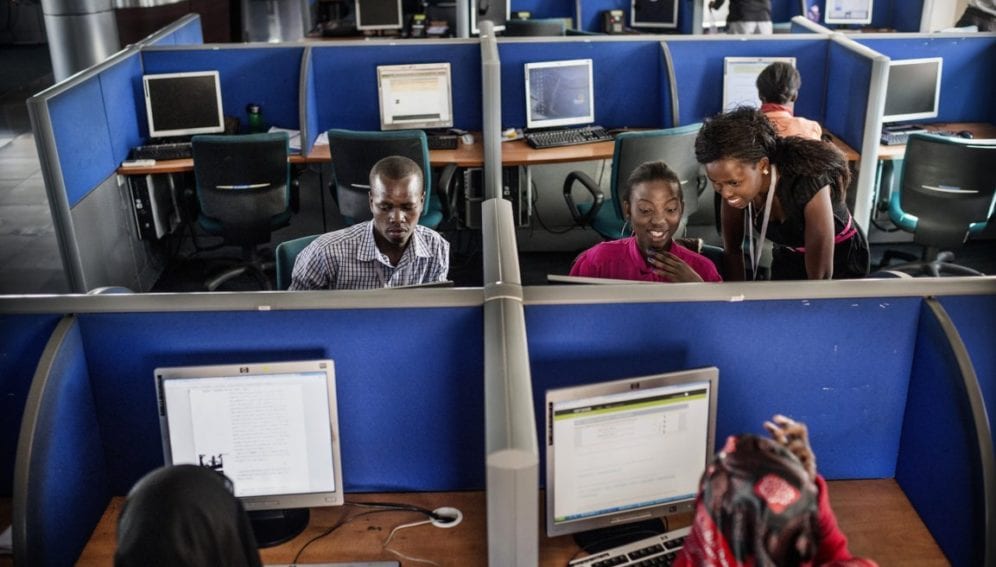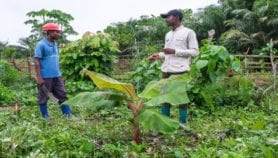By: Ignatius Ssuuna
Send to a friend
The details you provide on this page will not be used to send unsolicited email, and will not be sold to a 3rd party. See privacy policy.
[KIGALI] Information and communication technologies (ICTs) are contributing to rapid growth of African economies, but it is too early to know whether the gains would be sustainable, especially for the poor and the most vulnerable, according to experts.
The experts told the 2014 SMART Days Rwanda Conference held in Kigali, Rwanda this month (3-4 October) that the use of ICTs in the private and public sectors is growing fast across Africa, creating job opportunities for the youth.
ICT experts and policymakers from Burkina Faso, Gabon, Kenya, Mali, Rwanda, South Sudan and Uganda pointed out that the continent’s economy is being driven by digital payments, increased investments in ICT infrastructure, and ICT literacy.
“It is too early to tell largely how sustainable ICT-enabled transformations in Africa will prove to be.”
Wilber Munyaneza
Rwanda President Paul Kagame said ICT has made it easy for Africa to compete in the global economy. “Today, ideas do not have borders and therefore African countries cannot be landlocked,” he said.
ICT’s contribution to Rwanda’s gross domestic product during the last two quarters stood at 2 per cent, ahead of traditional sectors such as agriculture and mining, according to Jean Philbert Nsengimana, Rwanda’s minister for youth and ICT.
But the experts caution that even as broadband connectivity to Africa’s rural areas increases, the population must be given the right skills to appreciate these technologies for a knowledge-based society.
Fred Kowole, a professional wireless and network engineer from Gabon, said ICT as a tool for development, has had positive results for Africa’s economy, adding that governments must continue teaching the youth science skills to help bridge gaps in technology between urban and rural populations. .
SMART Days Rwanda’s co-organiser, the International Telecommunications Union (ITU), said that ICTs have helped accelerate economic growth in sectors such as agriculture, health, education, financial services, government service delivery and trade.
The conference identified the impact of ICTs in several countries.
In Rwanda, the government and World Bank’s E-Soko project worth 5 billion Rwandan francs (almost US$7.3 million) is updating farmers through daily mobile phone short message service (SMS) on commodity prices, thus helping them access markets.
Mali’s telemedicine is providing healthcare to hundreds of rural people, helping the government to overcome the lack of trained healthcare workers and specialists in rural areas.
The Kilimo Salama scheme in Kenya is providing crop insurance for farmers using the M-Pesa payment gateway, helping them to better manage natural hazards such as drought.
“It is too early to tell largely how sustainable ICT-enabled transformations in Africa will prove to be,” said Wilber Munyaneza, an ICT consultant based in Uganda. “We shall need time to see whether those benefits of these technologies will go beyond tech-savvy entrepreneurs up to the poor and the most vulnerable.”
Hamadoun Toure, ITU secretary-general, called for equitable and affordable network connectivity to rural areas with the right content to increase knowledge and development.
“The pace at which the African continent increases its access to bandwidth Internet has grown in just four years,” Toure said, revealing that by early 2013, some 750 million mobile phone subscriptions were in use, covering two-thirds of all African adults.
This article has been produced by SciDev.Net's Sub-Saharan Africa desk.














